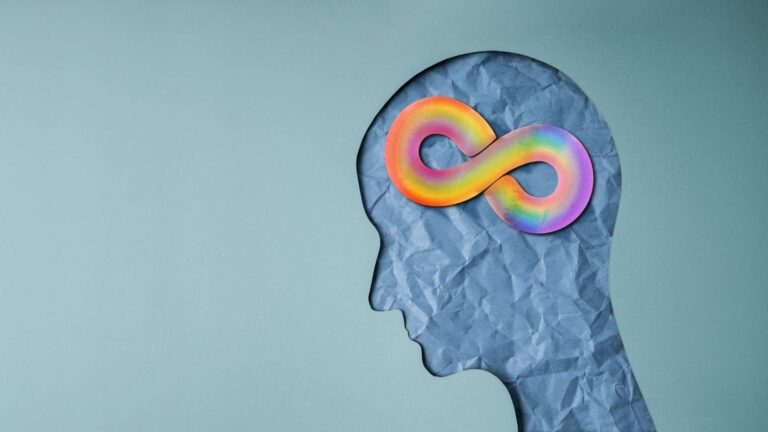Is it autism?
For parents who have concerns about their child possibly showing signs of autism, grasping the autism testing and diagnosis can feel overwhelming. It’s a crucial step in determining where your loved one stands on the spectrum, which in turn helps them make informed decisions.
Every parent wants reassurance that their child is okay. That means being able to identify potential disorders early on and even asking yourself, “Is it autism?”. Understanding the testing and diagnosis procedures equips us with the knowledge to navigate this journey confidently.
At ABA Centers of Connecticut, we understand the need for support and clarity during this challenging time. Through this blog, we aim to demystify the autism testing and diagnosis process, providing you with the information you need to move forward.
Early Warning Signs of Autism
Understanding the early signs of autism can be instrumental in facilitating timely support and intervention for children. While developmental milestones vary among individuals, being mindful of specific indicators can aid in early detection. According to the Centers for Disease Control and Prevention, kids can display signs of autism at 18 months of age, and by the age of 2, professionals can establish a reliable diagnosis.
The autism signs can encompass various aspects of a child’s behavior and development, including:
Social Interaction: Some children with autism may exhibit challenges in social interaction. This difficulty can manifest as difficulty making eye contact, limited interest in playing with peers, or struggle grasping social cues and emotions.
Communication: Another aspect often displayed by children with autism is communication. Communication difficulties may include:
- Delayed speech or language development
- Repetitive speech patterns
- Challenges in initiating and maintaining conversations
- Don’t develop verbal communication
Repetitive Behaviors: Repetitive behaviors are a fundamental part of the diagnosis criteria. These behaviors can range from repetitive movements like rocking or hand-flapping, fixating on specific objects or topics, and adhering to strict routines or rituals.
Sensory Sensitivities: Heightened sensitivity to sensory stimuli is also a characteristic feature of autism. Children may display sensitivity to lights, sounds, textures, or smells, which can sometimes lead to discomfort or distress.
It is essential to note that although these signs may indicate autism, they do not necessarily confirm a diagnosis. There are individuals diagnosed with autism who show entirely different signs. It’s always best to consult with a medical professional for an accurate assessment and diagnosis.
Understanding the Autism Testing and Diagnosis Process
The process of testing for autism involves a comprehensive evaluation by a team of professionals, including doctors, psychologists, and therapists. This evaluation includes observing the child’s behavior, conducting standardized assessments, and gathering information from parents or caregivers.
One key aspect of the evaluation is determining whether the child meets the specific criteria for autism spectrum disorder outlined in the Diagnostic and Statistical Manual of Mental Disorders (DSM-5). This process involves assessing the child’s social interaction, communication skills, and repetitive behaviors.
In addition to looking for signs of autism, the evaluation may also include overseeing other possible causes for the child’s symptoms through medical tests or discussions with family members.
Parents play an essential role in the evaluation process by providing information about their child’s development and behavior. Their input helps the professionals gain a more comprehensive understanding of the child’s strengths and challenges.
Tips for Parents on the First Doctor Appointment
The first doctor’s appointment following concerns about your child’s development can be overwhelming. ABA Centers of Connecticut share some tips to help you navigate this process:
Prepare Ahead: Write down any concerns or observations you hav fore about your child’s development, including specific examples of behaviors or milestones.
Ask Questions: Don’t hesitate to ask the doctor about autism and the evaluation process. Clarify any terms or recommendations you don’t understand.
Bring Documentation: Bring any relevant medical records, developmental assessments, or reports from other professionals working with your child.
Seek Support: Consider bringing a trusted friend or family member to the appointment to provide emotional support and help remember important information.
Follow-Up Plan: Discuss the next steps in the evaluation process and any referrals or interventions the healthcare professional may recommend.
Remember, you are your child’s best advocate, and seeking answers and support is a proactive step toward helping them thrive.
Results and Recommendations
After completing the autism testing and diagnosis, the professionals discuss their findings with the parents or caregivers. If the child meets the criteria for ASD, they provide a formal diagnosis. This diagnosis outlines the severity of the child’s symptoms and areas of strength.
In addition to the diagnosis, the team offers recommendations for interventions and support services tailored to the child’s needs. These recommendations may include behavioral therapies like applied behavior analysis (ABA), educational strategies, and community resources to help the child thrive.
Individualized treatment plans are developed based on the child’s specific strengths and challenges. These plans aim to address areas such as communication, social skills, and behavior management, with the goal of promoting the child’s overall development and quality of life.
Therapists and professionals always encourage parents to participate actively in the treatment planning process and collaborate with healthcare professionals to implement recommended strategies at home and in other settings. This partnership ensures consistency and continuity of care, maximizing the child’s progress and success.
ABA Centers of Connecticut Helps You Navigate Autism
Recognizing that your child may display signs of a neurodevelopmental condition and performing autism testing and diagnosis is essential for finding the interventions and therapies that your loved one may need to navigate with greater assurance. According to the NICHD, during early childhood, a child’s brain is highly adaptable, making interventions more likely to be effective in the long run. Early interventions in autism not only provide children with a strong foundation but also enhance their potential for future development.
Begin your journey with confidence; at ABA Centers of Connecticut, we offer a variety of autism care services. Our early intervention programs focus on promoting communication, social skills, and adaptive behavior. With the addition of ABA therapy, our therapists target specific behaviors and skills, using positive reinforcement to encourage meaningful change and independence.
Contact us by calling (844) 395-0448 or schedule a free consultation to explore evidence-based approaches to improving the life of your loved one on the spectrum.








